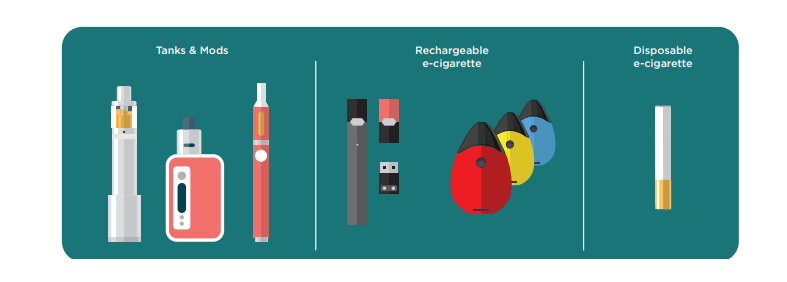
The Centers for Disease Control & Prevantion announced the updated number of confirmed and probable lung injury cases and deaths associated with the use of e-cigarette, or vaping, products this week.
The related deaths and injuries have both tikced up in the past week, the former increasing by just one. This week’s injury numbers represent an increase of 125 cases of lung injury compared with what the CDC reported last week.
Patients with Lung Injury
- As of October 22, 2019, 1,604 confirmed and probable lung injury cases associated with use of e-cigarette, or vaping, products were reported by 49 states (all except Alaska), the District of Columbia, and the U.S. Virgin Islands.
Deaths
- 34 deaths have been confirmed in 24 states: Alabama, California (3), Connecticut, Delaware, Florida, Georgia (2), Illinois (2), Indiana (3), Kansas (2), Massachusetts, Michigan, Minnesota (3), Mississippi, Missouri, Montana, Nebraska, New Jersey, New York, Oregon (2), Pennsylvania, Tennessee, Texas, Utah, and Virginia.
- The median age of patients who have died is 49 years, ranging from 17 to 75 years old.
The vast majority of patients with EVALI, including those who died from their lung injury, had a history of use of e-cigarette, or vaping, products that contained THC. With data now available for more than 860 patients with EVALI, about 85 percent had a history of using e-cigarette or vaping products that contained THC. Around 10 percent reported exclusive use of nicotine containing products. Product histories were available for relatively few fatal cases or a relatively small number of fatal cases, but the vast majority, but not all, had a history of use of vaping products that contained THC.
The U.S. Consumer Product Safety Commission (CPSC) warns consumers that even small amounts of liquid nicotine can be extremely hazardous to children and pets who swallow it or come into contact with it through their skin. Parents and caregivers should always store liquid nicotine in its child-resistant packaging, tightly seal the container after each use, and keep it locked up and away from children and pets. When handling solutions containing liquid nicotine, adults should also be careful to minimize direct skin contact. Liquid nicotine is commonly used in e-cigarettes and is available to consumers in a variety of stores and online.
Consumers should treat liquid nicotine like any other potentially toxic substance. If a child or pet swallows liquid nicotine, or gets any amount on their skin or eyes, immediately call the Poison Control Center Hotline at: 1-800-222-1222.

1 Comment
Leave a Reply
Cancel reply
Leave a Reply

Bulloch Public Safety
7/14/2025 Booking Report for Bulloch County

Chattooga Local Government
Congresswoman Marjorie Taylor Greene Introduces Bill to Eliminate Capital Gains Tax on Home Sales

Georgia News
‘Operation Southern Slow Down’ Starts Today

Chattooga Opinions
The Joy of the Journey: Faith Through Uncertainty

Bulloch Public Safety
06/23/2025 Booking Report for Bulloch County

Bulloch Public Safety
06/30/2025 Booking Report for Bulloch County

Bulloch Public Safety
06/16/2025 Booking Report for Bulloch County

Bulloch Public Safety
06/19/2025 Booking Report for Bulloch County

Bulloch Public Safety
7/09/2025 Booking Report for Bulloch County






Nelda Smith
October 27, 2019 at 9:15 am
I’D SAY IT’S AMAZING TO SEE SUCH COINCIDENCE “TICKING UP” AGAIN! OH, THIS ABOUT THC IN THEM (MARIJUANA OIL?). WHAT ABOUT PEOPLE WHO VAPE BUT DO NOT USE THC?